Raids in New Jersey town target ultra-Orthodox Jews accused of welfare fraud. ‘What is going on here?’
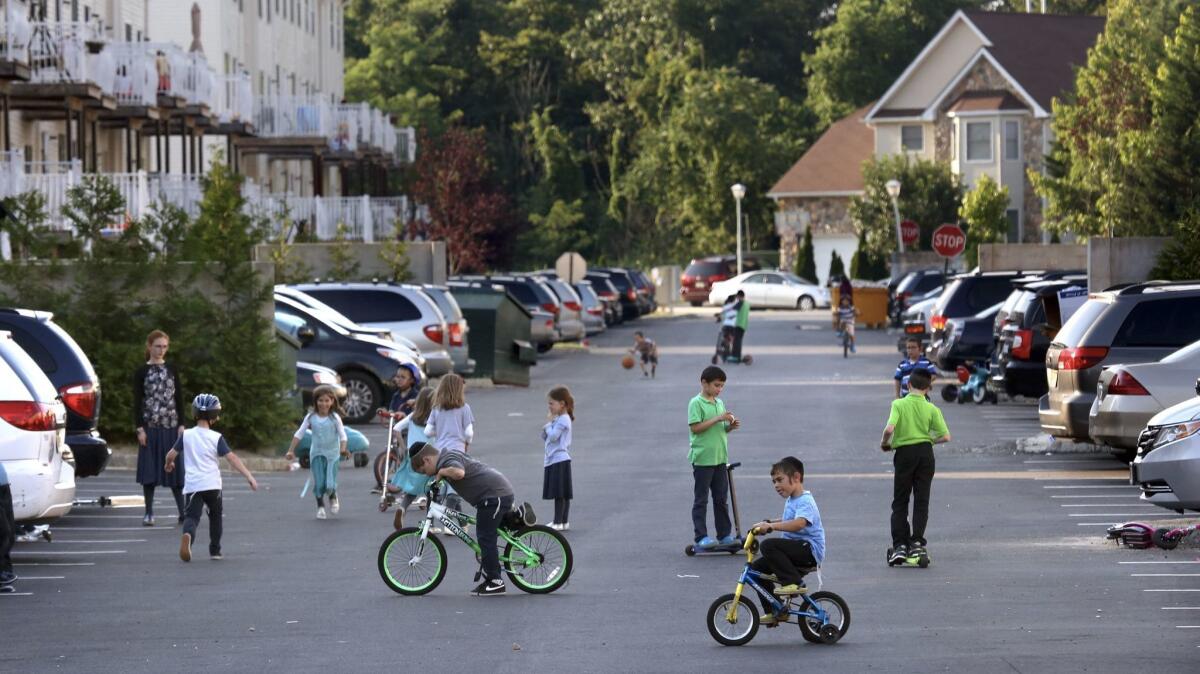
- Share via
Reporting from Lakewood, N.J. — It was a spectacle nobody in this sleepy New Jersey town would forget.
Early one Monday morning, police and FBI agents in bulletproof vests bounded up the steps of suburban townhouses and split levels, threatening to break down the doors, hauling out in handcuffs husbands and wives in the distinctive clothing of ultra-Orthodox Jews. One was a prominent rabbi and head of a synagogue.
It was the dramatic kickoff of a series of well-publicized raids that since late June have netted 26 suspects on charges of stealing $2 million in government benefits. Prosecutors say that the suspects understated their income to get free healthcare, food stamps, rental subsidies and other benefits.
All of those arrested — 13 men and 13 women — were ultra-Orthodox Jews. The charges have tapped into a well of festering hostility toward an insular and eccentric minority.
Once a backwater at the edge of New Jersey’s Pine Barrens, Lakewood is now home to one of the largest concentrations of ultra-Orthodox Jews outside of Israel. They are a fast-growing population with a high birthrate; the population of Lakewood has exploded from 45,000 in 1990 to more than 100,000 today. Many of the newcomers are from large families priced out of Brooklyn by gentrification.
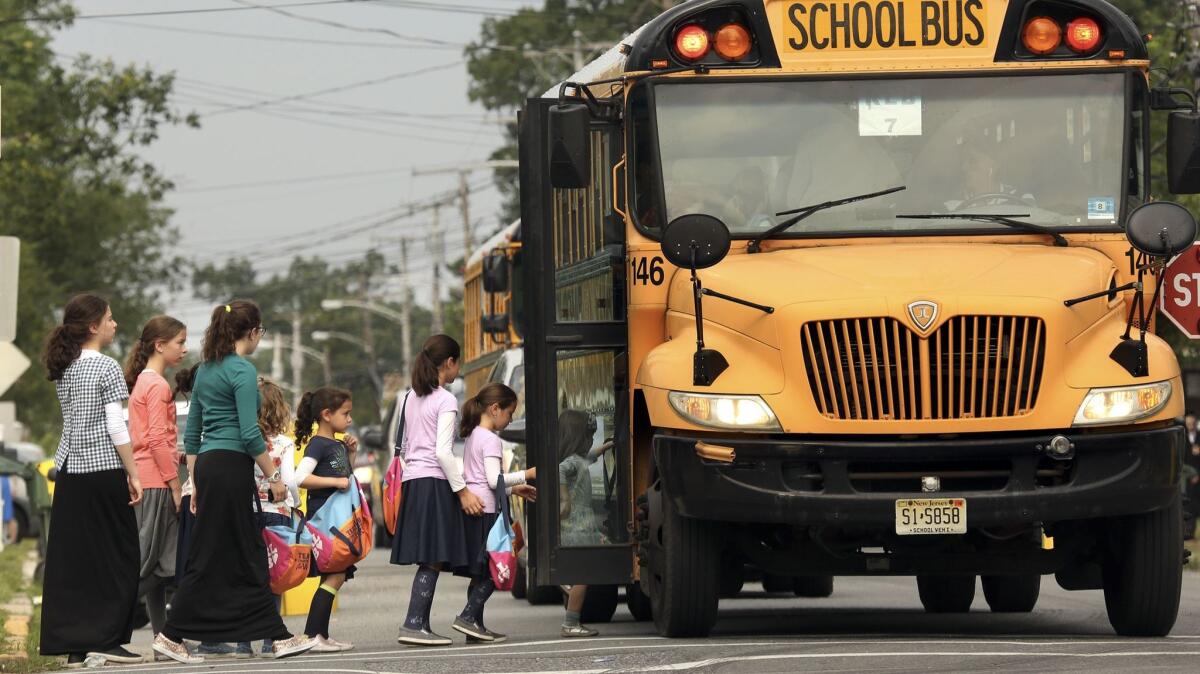
At first glance, little sets Lakewood apart from any number of other suburban communities on the fringes of the New York metropolitan area. But the differences are there. Signs are commonly in Hebrew and Yiddish. The Shop-Rite has closed and was replaced by Glatt Gourmet, a kosher supermarket. New subdivisions have Jewish-themed street names, like Hadassah Lane.
Like the Amish, these strictly observant Jews are instantly recognizable by their modest dress — the women in long skirts and wigs that cover their hair, and the men with yarmulkes or black fedoras and tzitzit, the strings hanging out of their shirts that remind them of their religious obligations. Instead of buggies, though, they mostly drive SUVs or minivans to fit large broods of children.
Around New York, there are a handful of similar towns that are dominated by ultra-Orthodox Jews, but only in Lakewood have federal and state authorities laid down the gauntlet so definitively.
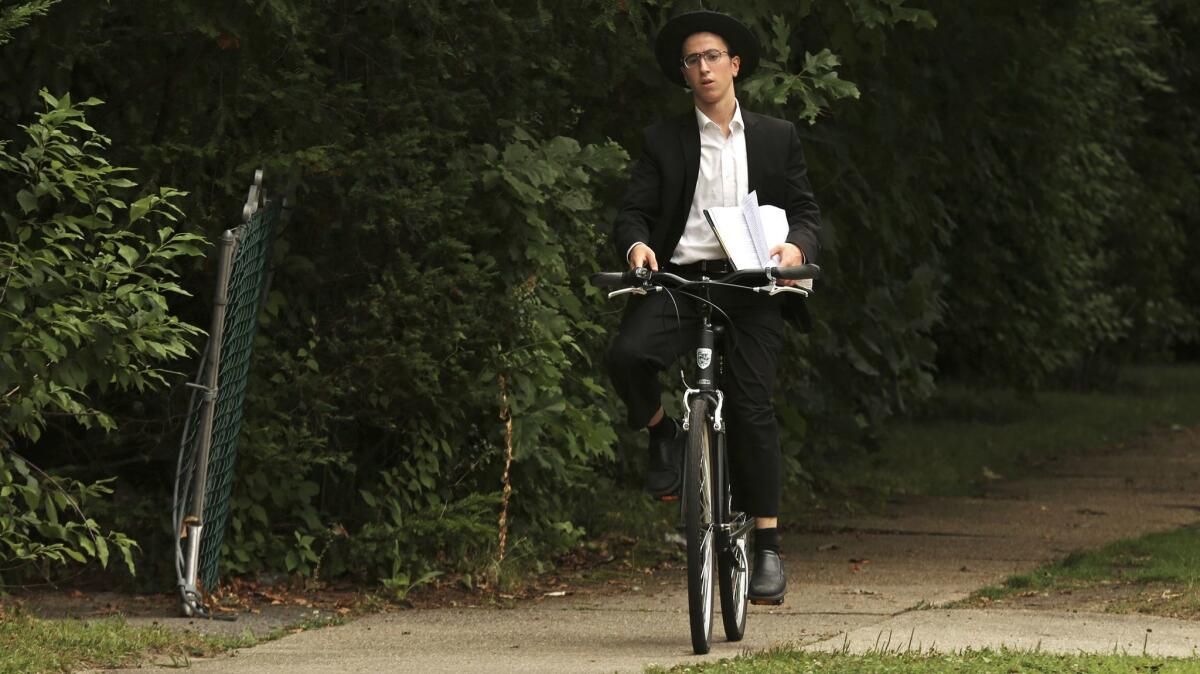
Many young families are heavily dependent on government benefits. Couples marry and bear children young, usually in their early 20s while the fathers are full-time students in religious schools, the mothers working part-time doing office work.
With five or more children, many of them with special needs — a result attributed to women having multiple births until late in life and genetic disorders in a relatively closed population — families cannot survive without government assistance, especially to buy health insurance.
You have a family or six or seven or eight ... and they’re reporting their total income at $10,000. ... You have to ask -- what is going on here?
— Ocean County Prosecutor Joseph Coronato
In Lakewood, 65,000 people — more than half the town’s population — are on Medicaid, the government health program for low-income families, according to state data. Lakewood has more children with two parents receiving government benefits than any other municipality in New Jersey, including large, chronically depressed cities such as Newark and Camden. A report by the Asbury Park Press found that Lakewood had received 14% of the money from a $34-million state fund for catastrophic illnesses in children, despite having only 2% of the state’s children. It also found that the town had 29 times more grant recipients than any other town in New Jersey.
In 2015, the New Jersey state controller’s office flagged the disproportionate sums of government money being absorbed by Lakewood. The town didn’t look poor by any conventional yardsticks of poverty.
“You have a family or six or seven or eight, somebody is paying the mortgage, somebody is paying the taxes, they have two cars in the driveway, they’ve got food for all the kids … and they’re reporting their total income at $10,000,’’ said Joseph Coronato, the Ocean County prosecutor who took the lead in the case. “You have to ask — what is going on here?’’
In one case unsealed by the court in June, a couple with six children are alleged to have reported their income at $39,000 per year — low enough to qualify for Medicaid — when in fact they were getting more than $1 million annually from a limited liability corporation.
Members of the religious community say that cases of deliberate fraud are rare. For the most part, they say, the couples caught up in prosecutions had failed to report money they’d gotten from parents who were either paying the tuition for children in private schools or helping with the mortgage.
“The rules are very confusing. You have to be a Talmudist to figure out which program treats gifts from family as ordinary income,” said Rabbi Moshe Weisberg, the Lakewood head of what is called the Vaad, a self-governing council for the ultra-Orthodox community.
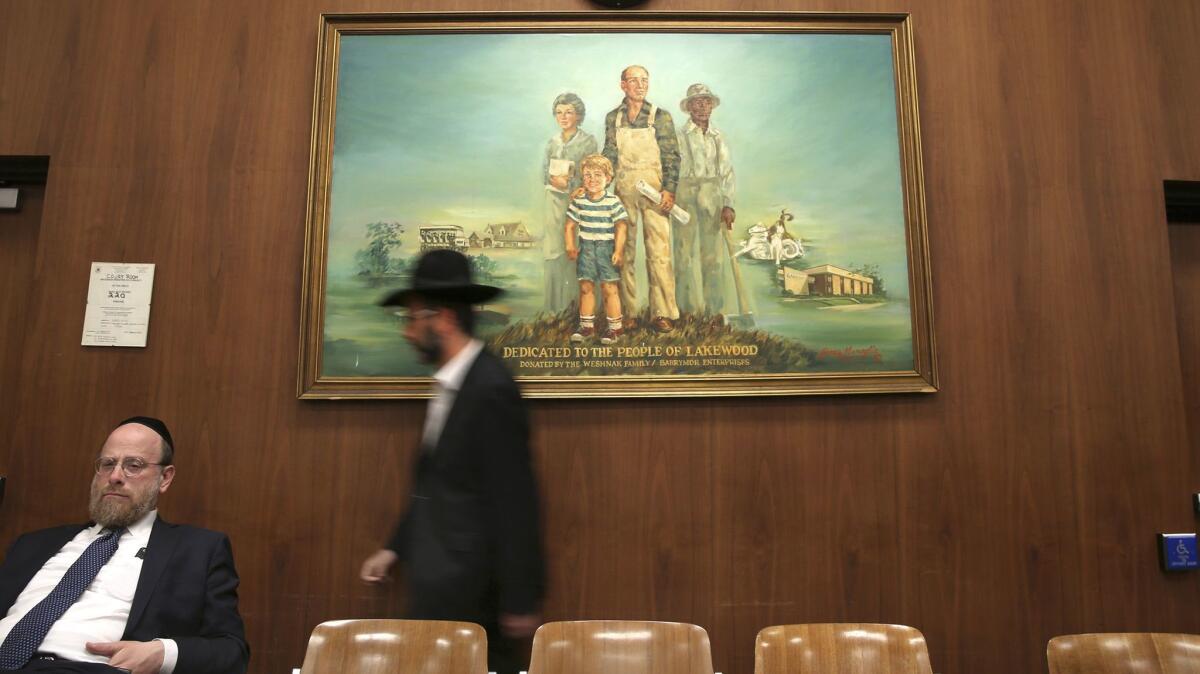
People most often got in trouble with their Medicaid applications, motivated by their inability to afford market-rate health insurance, which he said ran as high as $30,000 annually for a large family. Several of the families have disabled children, he noted.
“None of these people used any of this welfare money for an extravagant lifestyle. They were struggling to make ends meet and trying to pay medical bills,” said Harold Herskowitz, a businessman who runs a toy store in Lakewood. He believes the prosecutions were motivated by hostility toward the ultra-Orthodox.
“I’m the child of Holocaust survivors; I don’t appreciate Jewish people dragged out in public early in the morning,” Herskowitz said.
The initial arrests in June received extensive news coverage, with television crews tipped off in advance to film the scenes of couples in handcuffs being led away. Following complaints, the prosecutors have made subsequent arrests more discreetly, but still the publicity rankles.
The case has tapped into a wave of hostility toward the community. Last month, somebody hung an anti-Semitic banner on a Holocaust memorial in Lakewood, and fliers were distributed on the windshields of cars with photos of those arrested under the caption, “Thieving Jews Near You.”
Under fire from many sides, the observant Jews of Lakewood are trying to burnish their reputation in New Jersey. They’ve hosted outreach programs between the community and the police — Bagels, Lox & Cops, as the meetings have been called. Other public programs have been designed to advise ultra-Orthodox families on how to stay on the legal side of public assistance programs.
Lakewood, about 50 miles from New York City, was a resort town for the New York elite beginning in the late 19th century, attracting luminaries such as Mark Twain and members of the Rockefeller family. Their fancy retreats were later turned into kosher hotels catering to working- and middle-class Jews, the town becoming an extension of the Catskills’ Borscht belt across the border in New York state.
In 1943, the Rabbi Aharon Kotler, a Holocaust survivor who fled Lithuania, picked the town for his Beth Medrash Govoha, a yeshiva — religious school — that is now one of the world’s largest with 6,500 students, all men. That would in turn attract other yeshivas, along with Jewish primary schools, kosher delicatessens and shops.
“It was an idyllic little town with a strong Jewish flavor,’’ said Aaron Kotler, the founder’s grandson and current head of the yeshiva, in an interview in his sprawling suburban ranch house, the walls proudly displaying oil paintings of previous generations of bearded rabbis. “My grandfather chose Lakewood because it was quiet, which is ironic because people complain the yeshiva has ruined the quiet.’’
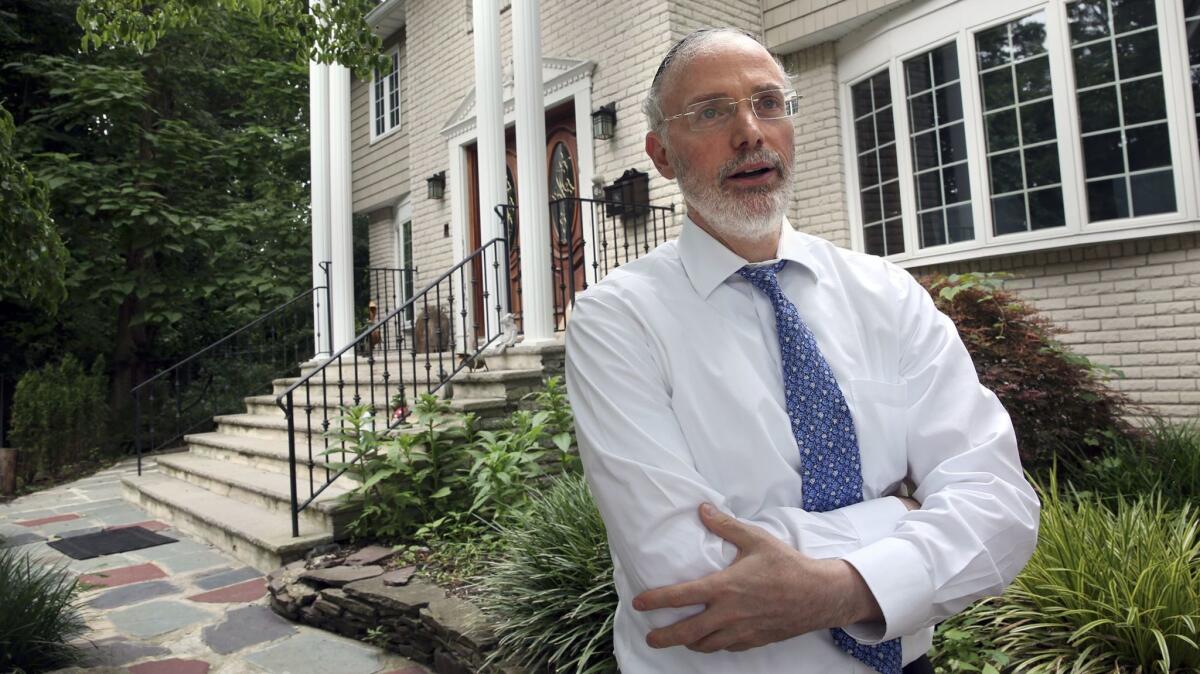
Kotler describes Lakewood today as one of the most attractive destinations for young religious Jews to study and raise families, making the demographics similar to other university towns.
“I like to think of Lakewood as poor by choice,’’ said Kotler.
The community has shown itself to be unusually adept at navigating the intricacies of politics and government.
“Their lives depend on knowing everything about how Section 8 [subsidized rental housing] works and getting into WICs,” the government Women, Infants and Children food assistance program, said Samuel Heilman, a sociology professor at Queen College who has written several books on the community.
Politically speaking, the ultra-Orthodox wield clout beyond their numbers, with adult members almost always turning out for elections and voting as a single bloc.
“They tend to vote like the Christian right, and they have learned to make their votes very important,” said Heilman.
In all of New Jersey, Lakewood had the highest concentration of Donald Trump voters in last year’s presidential election – 74.4%. With their children all in private religious schools, they are strong supporters of Betsy DeVos, the education secretary who has called for school vouchers. Charles and Seryl Kushner, the parents of Trump aide and son-in-law Jared Kushner, are benefactors of the Beth Medrash Govoha yeshiva, and the rotunda of the school’s 2-year-old main building is named for them.
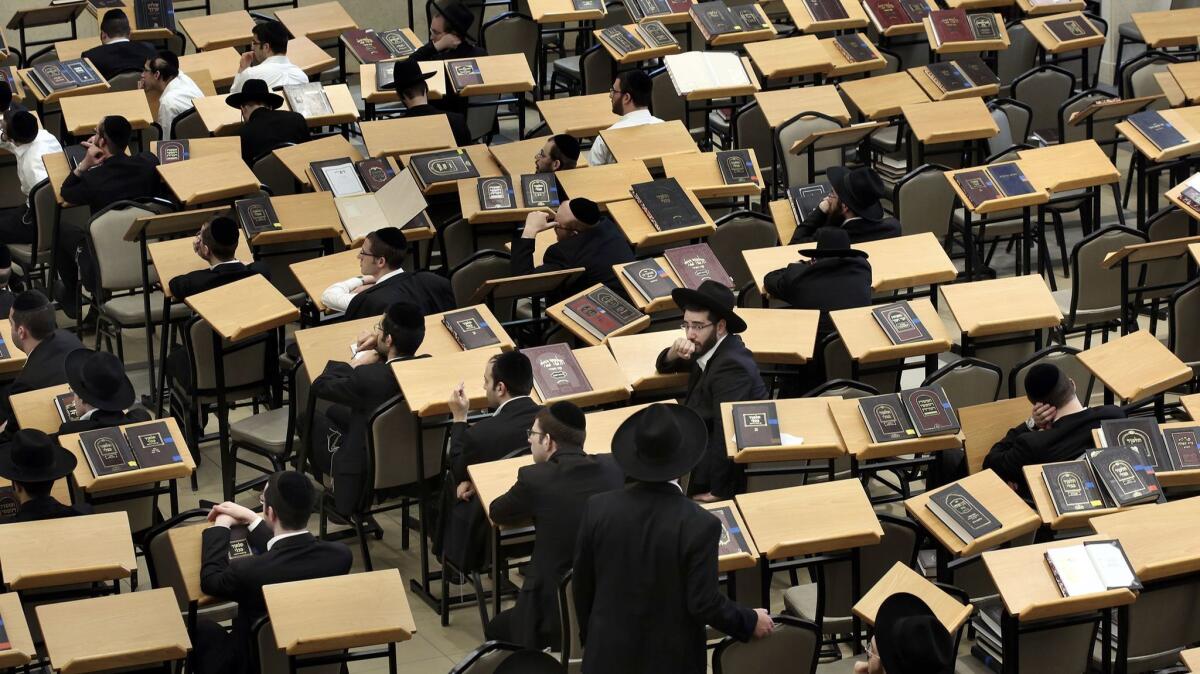
Ultra-Orthodox votes are even more important in local political races. They have installed candidates who favor their interests on the Lakewood school board, township committee and zoning board.
Lakewood’s 30,000 ultra-Orthodox children are ferried to 130 private religious schools on public school buses — boys and girls separately, since they attend single-sex schools — while public schools with only 6,000 children, mostly Latino and African American, have been gutted by a lack of funding. (This is in part due to a quirk in New Jersey’s school financing formula that requires busing for private school students but reimburses the districts based on public school enrollment.)
Some 4,000 new units of housing have been approved in Lakewood in the last two years, making the township the fastest-growing municipality in New Jersey. Real estate developers catering to the ultra-Orthodox are carving new subdivisions lined with four- and five-bedroom townhouses for large families.
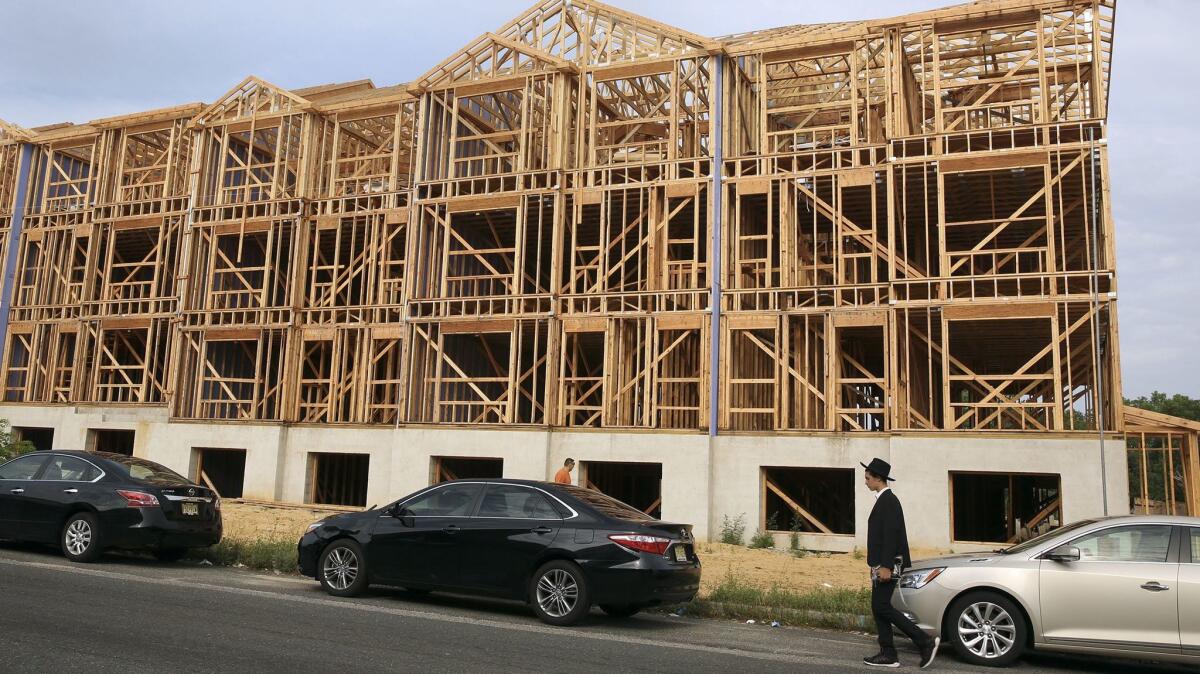
“When I moved here, there were trees. Now I wake up and I’m surrounded by high-density townhouses,” said Tom Gatti, a retiree who heads a coalition of senior citizens opposing the pace of new development in Lakewood. “Anytime you try to challenge anything the ultra-Orthodox are doing, they drop the anti-Semitic card on the table.
“They are not looking to assimilate into the community; they are trying to take over,’’ Gatti said.
The ultra-Orthodox Jews also face criticism from less religious and secular Jews.
“Being observant should, first and foremost, involve living and working ethically,’’ complained a hard-hitting editorial in the Forward, the Yiddish- and English-language Jewish publication based in New York. The editorial called the welfare fraud cases “a desecration of God’s name.’’
“It’s too simple to say that this is a problem with Jews,’’ said Heilman, the sociology professor. “It is not their Jewishness that has created the problems; it is the way they interpret the demands of being Jewish.’’
ALSO
They helped clean up the wreckage of 9/11. Now they face the threat of deportation
Why two Israeli Supreme Court rulings could hurt Netanyahu’s governing coalition
Colorado cake maker asks Supreme Court to provide a religious liberty right to refuse gay couple
More to Read
Sign up for Essential California
The most important California stories and recommendations in your inbox every morning.
You may occasionally receive promotional content from the Los Angeles Times.













